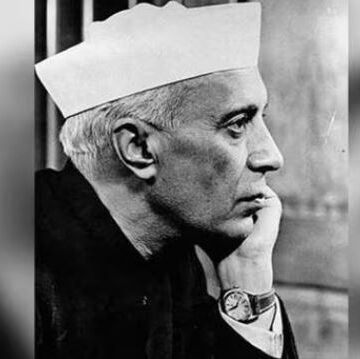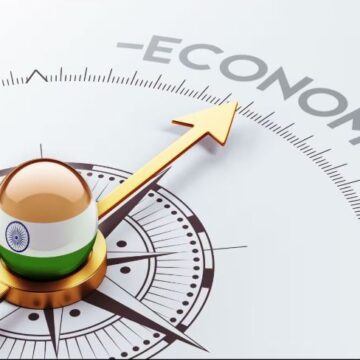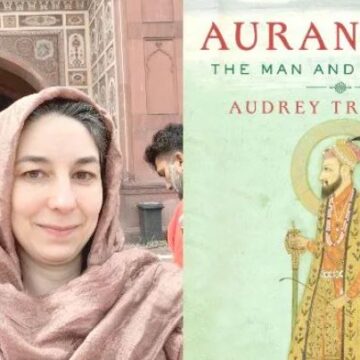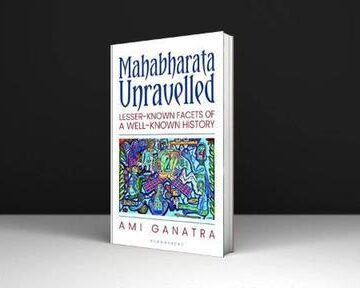Were Nehru's myopic decisions solely blunders or were they influenced by his personal friendships with the last British Governor-General Lord Mountbatten and the first CM of J&K Sheikh Abdullah? Jahnavi Naik explores in this article.
Category: <span>Uncategorized</span>
Understanding Indian Economy: Ancient To Modern – Part 4
The previous parts were an attempt to summarise the Indian economic story from its ancient roots until the end of British rule from various sources. The understanding of the Indian economy after independence also tends to be a little complex for a layperson to understand because of conflicting opinions. However, the overall story is one of hope and pride rather than shame and disappointment. This part also includes selected references and further readings for those interested.
Understanding Indian Economy: Ancient To Modern – Part 3
In the previous parts, we looked at the ancient and mediaeval Indian economies and the impact of European colonialism on India and the world. The British left in 1947, our economy was in shambles, and there were many problems with the intellectual narratives set by the colonials. This part is an assessment of British rule in India and where we stood at independence.
Understanding Indian Economy: Ancient To Modern – Part 2
Part 1 of this series was a summary of the ancient Indian economy. In this part, we shall look at the mediaeval economy of India, which began with the fall of the Gupta dynasty in the 7th century CE and finally culminated with the beginning of the Delhi Sultanate in the 13th century CE. This part also covers the important rise of Europe in dominating the world order through its colonial expansion and how it specifically impacted India too.
On Audrey Truschke’s “Aurangzeb: The Life and Legacy of India’s Most Controversial King”
"Bridging the chasm between the historical Aurangzeb and this reimagined (and largely imaginary) Aurangzeb is a daunting task, but Truschke makes her case with the chirpy enthusiasm of an Aurangzeb fangirl writing a puff piece in People magazine on her idol.
The received historiography on Aurangzeb is riddled with outlandish hoaxes that have gone unchallenged for decades. Truschke’s book is a worthy addition to this genre since it refreshes our memories of these hoaxes while enthusiastically manufacturing new ones."
An incisive and witty review of Audrey Truschke's book on Aurangzeb, and her source material, by Keshav Pingali.
Understanding Indian Economy: Ancient To Modern – Part 1
"For a long time, Marxist historians had a hegemonic hold on only one type of discourse. Marxist linear history represents India and its traditions as the past, or decadence, and the West as the future, or progress. In a world where globalisation, trade, and mutual exchange are a given, it is disagreeable to argue that perhaps we needed an invasion or colonisation to open our eyes to the world."
Thoughtful Reflections on ‘Mahabharata Unravelled’ by Ami Ganatra
A deeper dive into some characters and aspects of Mahabharata with the help of Ami Ganatra's book "Mahabharat Unravelled".
The Hārītīputras — Contesting distortionary narratives about the origins of the Ćāḷukyās
Anirudh Kanisetty’s book ‘Lords of the Deccan’ claims that the Ćāḷukyās were originally agriculturalists who formed into bands of brigands going about looting villages and towns, amassing wealth which emboldened them to lay claim to the terrorized territories as sovereigns, legitimised by védic sacrifices.
Lakshmi Prasad J, in his rebuttal, researches and unearths that the Ćāḷukyas of Bādāmī claim descent from Hārīti, a royal matriarch from antiquity, associated with a string of illustrious dynasties. The matronym, Hārītīputra finds mention in the royal panegyrics of at least half a dozen dynasties of Deccan.
With so much information about Calukyas being available in public domain for decades now, one expects a young researcher to be better informed and not get influenced into weaving Bollywood-esque portrayal of our ancestors.
Understanding Political Systems Of India – Part 4 – Chaos In The Narratives And The Resistance To Correct Them
"Post-independent academia propagated a linear version of history: past equals primitive equals India; future equals advanced equals West. Indian civilization, at least five thousand years old, apart from a high quotient of personal happiness, had a thriving economy with highly evolved arts, literature, education, sciences, spirituality, architecture, and so on. And then came the Western political philosophies, which persistently ill-fit our experiences.
Modern social sciences, with a great colonial hangover, have a strong antipathy for the traditional systems of India. This antipathy and the failure to look at Indian traditions have been dominant narratives in academia, the media, and politics.
We can always look at the past to handle the future better, and there is no better place than India to begin this, as Sri Aurobindo always insisted."
In the final installment of the series titled "Understanding Political Systems Of India" Dr. Pingali Gopal wraps up the discussion about force-fitting Western thought and political frameworks to Indian social systems, at the cost of Indian traditional systems tailor-made for our diverse society.
Understanding Political Systems Of India – Part 3 – Indigenous Political Thinking In Ancient And Modern India
"Western polity conceives of doing away with political parties and creating governments of national unity only in times of war or crisis; India, because of her long tradition of a unity underlying her diversity, should have shown that unity is not a freak phenomenon but a workable basis for new politics."
The current political and social systems being followed in India remain wedded to the older British structures. Concepts such as uncoupling of state and religion, secularism et al are based in Judeo-Christian theology; and where it is not available, these become radically unintelligible.
In the third installment of the series titled "Understanding Political Systems Of India", Dr. Pingali Gopal shares his findings from his study of ancient Indian thinkers such as Kautilya, and modern thinkers such as Sri Aurobindo, and Ananda Coomaraswamy, a Sri Lankan Tamil philosopher with a deep understanding of Indian culture.
Enlightened monarchies, free citizens, and decentralised political units glued together by spiritual and cultural unity were the essence of political India in the past. Following independence, India’s attempt at decolonization was less than half-hearted; and thinkers such as Sri Aurobindo were categorically ignored.






